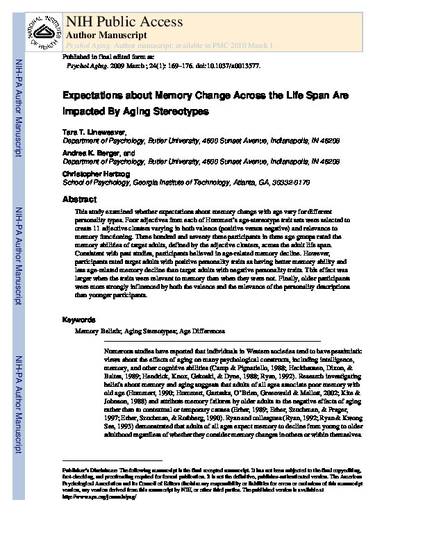
This study examined whether expectations about memory change with age vary for different personality types. Four adjectives from each of Hummert’s age-stereotype trait sets were selected to create 11 adjective clusters varying in both valence (positive versus negative) and relevance to memory functioning. Three hundred and seventy three participants in three age groups rated the memory abilities of target adults, defined by the adjective clusters, across the adult life span. Consistent with past studies, participants believed in age-related memory decline. However, participants rated target adults with positive personality traits as having better memory ability and less age-related memory decline than target adults with negative personality traits. This effect was larger when the traits were relevant to memory than when they were not. Finally, older participants were more strongly influenced by both the valence and the relevance of the personality descriptions than younger participants.
Copyright © 2009 American Psychological Association.
This is a post-print version of an article originally published in Psychology and Aging, 2009, Volume 24, Issue 1.
The version of record is available through: American Psychology Association. "This article may not exactly replicate the final version published in the APA journal. It is not the copy of record."Available at: http://works.bepress.com/tara_lineweaver/1/
